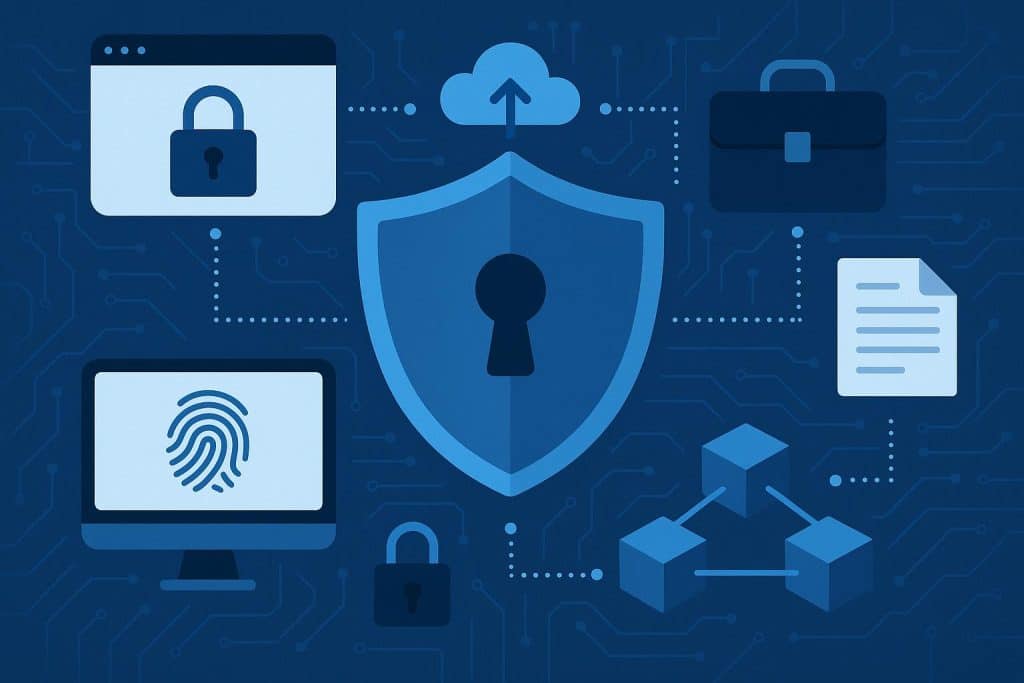In today’s digital economy, privacy and security have become top priorities for businesses handling cryptocurrencies. With cybercrime on the rise and regulatory demands growing, companies must carefully safeguard their digital assets while ensuring compliance. One of the most effective ways to do this is by leveraging blockchain technologies. From secure wallets to privacy-enhancing tools, organizations now have access to innovative methods that ensure every blockchain payment is safe, verifiable, and confidential.
The Importance of Secure Storage of Digital Assets
Digital assets are highly valuable, but they are also vulnerable to theft if not properly stored. Traditional online wallets and exchanges have been prime targets for hackers, leading to multi-million-dollar losses across the globe. For businesses, such risks are unacceptable, especially when client funds or corporate reserves are involved.
Modern solutions emphasize multi-layered security. Hardware wallets, which keep private keys offline, provide an additional shield against phishing and malware. Multi-signature wallets, requiring approval from multiple users before a transaction is completed, add accountability and reduce the likelihood of unauthorized withdrawals.
Privacy in Cryptocurrency Transactions
While blockchain is praised for transparency, the same openness can expose sensitive financial information. Competitors, malicious actors, or even cybercriminals could analyze transactions to extract business insights or identify vulnerabilities. This is where privacy tools become critical.
BitHide experts note that companies are increasingly seeking solutions that allow them to maintain confidentiality while still leveraging blockchain technology. By anonymizing certain transaction details or integrating advanced encryption layers, businesses can protect their partners, customers, and operational strategies from unwanted exposure. This balance of privacy and compliance is essential in industries where both discretion and accountability matter.
Best Practices for Business-Level Crypto Security
To truly protect their digital operations, businesses must go beyond technology alone and implement comprehensive security policies. Best practices include:
1. Regular Security Audits
Conducting audits ensures that any vulnerabilities in wallet infrastructure or internal processes are detected early. Independent third-party audits provide unbiased insights.
2. Employee Training
Human error remains one of the biggest risks. Training employees to recognize phishing attempts, avoid unsecured networks, and properly handle private keys significantly reduces security threats.
3. Backup and Recovery Systems
Even with the best defenses, mistakes happen. Secure backup systems and recovery procedures ensure that assets are not permanently lost if credentials are compromised.
4. Using Privacy-First Wallets
Adopting wallets and services that integrate privacy features protects businesses against financial data leaks. These tools not only secure assets but also strengthen client trust.
Emerging Trends in Blockchain Security
The crypto security landscape continues to evolve rapidly, with new tools and approaches emerging to meet business needs.
Biometric Authentication
Wallets that integrate fingerprint or facial recognition offer stronger access control and reduce reliance on easily compromised passwords.
Regulatory-Ready Tools
With regulators demanding stricter anti-money laundering (AML) compliance, more wallets and platforms are embedding features to meet legal obligations while still preserving privacy.
Decentralized Identity Solutions
Blockchain-based identity tools allow businesses to verify partners without exposing sensitive details, creating a safer environment for digital collaboration.
According to industry observers, the combination of these tools is leading toward a future where security and privacy coexist seamlessly, rather than standing in opposition.
Conclusion
As businesses increasingly adopt cryptocurrencies, protecting assets and ensuring privacy has never been more critical. Tools such as hardware wallets, multi-signature systems, and privacy-focused solutions are helping organizations strengthen their defenses. Insights from BitHide and other experts highlight that the future of digital finance lies in balancing transparency with confidentiality. By integrating advanced tools and following best practices, companies can secure their operations, safeguard sensitive information, and build trust with partners and clients in the digital age.
